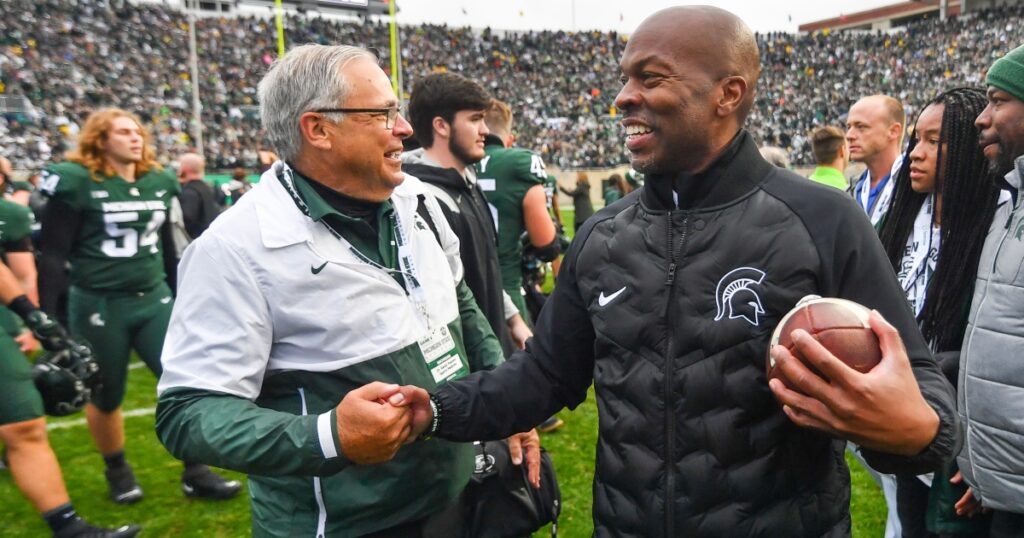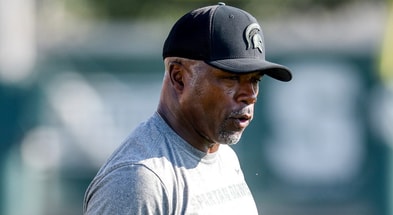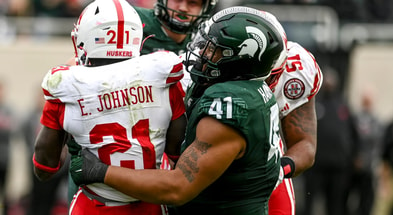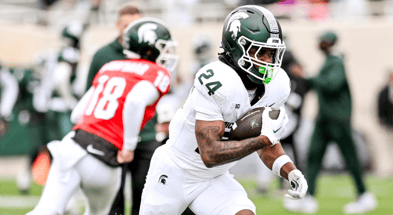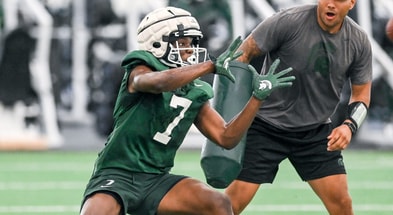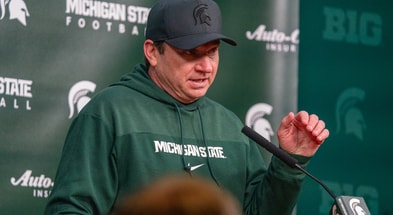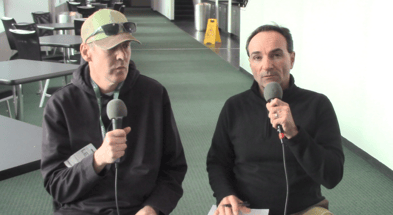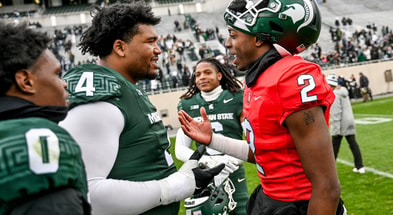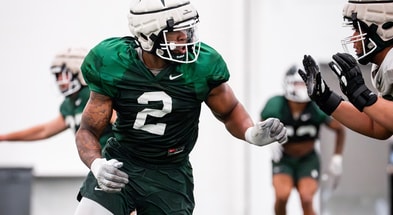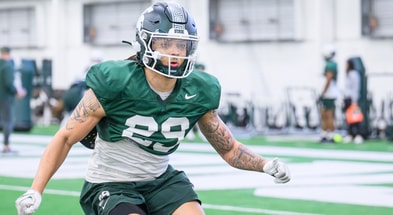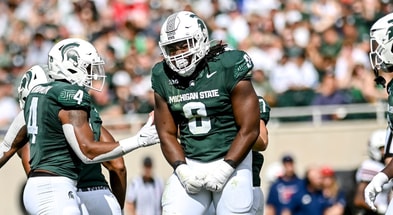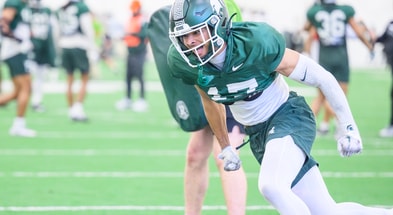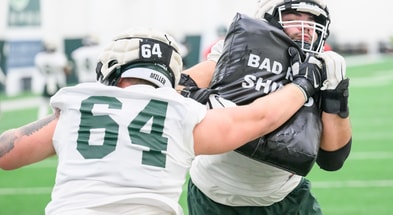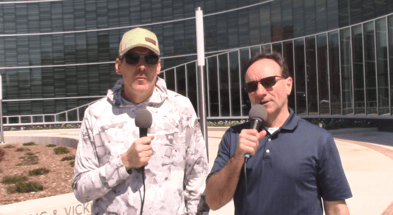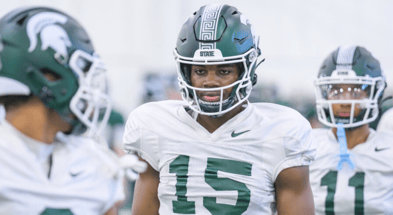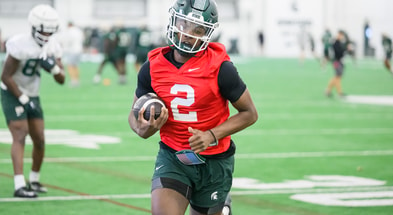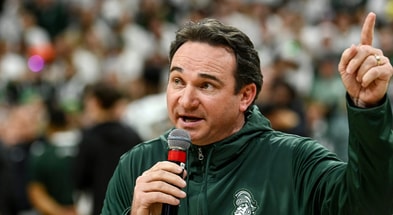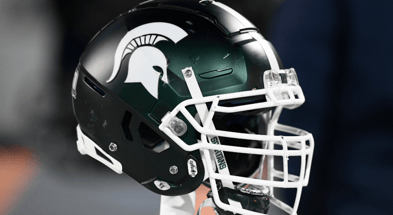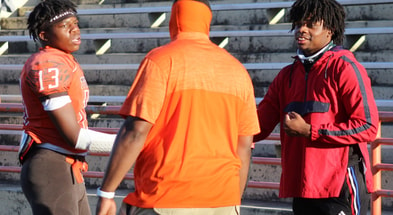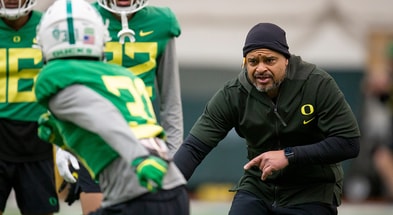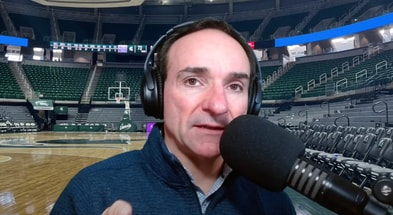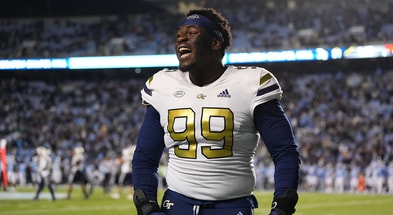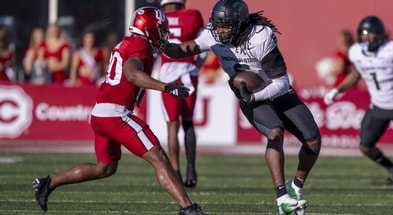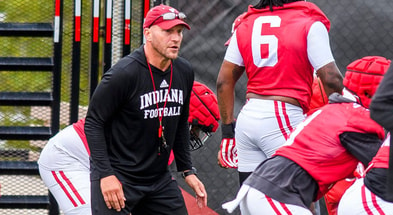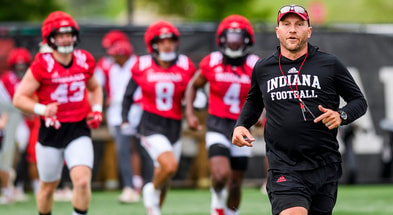Michigan State athletic director Alan Haller expands on decision to move Penn State game to Detroit: 'It was a close call'
East Lansing, Mich. – Michigan State’s athletic department did not hold a press conference to announce its decision to move the 2023 home football game against Penn State to prime time on Black Friday to Ford Field in Detroit.
But Michigan State athletics director Alan Haller was available to return texts, emails and phone calls with various members of the media in the days following the announcement.
SpartanMag was among those who exchanged text questions with the Michigan State athletic director, but before we could arrange an interview with Haller, venerable Lansing sports writer and talk show host Jack Ebling was able to achieve a lengthy interview with Haller, who is in his second year as director of athletics at Michigan State.
Ebling did a good job of asking nearly all of the questions that SpartanMag had for Haller during a podcast interview which dropped late last week on The Drive With Jack.
For those who haven’t listened to the podcast, the following are six takeaways from Haller’s interview, including long-form quotes from Haller:
1. The decision to move the game wasn’t made in a vacuum.
“It was a close call,” Haller said of the decision. “I’ll be honest, this wasn’t a slam dunk decision for me. It wasn’t ‘We have to do this. Make it work.’ That never came into the way that I was thinking.
“We developed a list of questions that I wanted answered. Most of it had to do with impact: Who is this going to hurt and help? What is the overall outcome that we are trying to accomplish? What are some of our goals and expectations and goals if we don’t do this? If we don’t do this, what is the impact?
“So I had a group of internal group within athletics of six people that were working on different pieces of that. And also I reached out to do different friends within the community that I trusted and really valued their opinion.
“We have people within our donor and friend base that own large companies and deal with companies. I reached out to some of them who deal with customers and make decisions that impact a lot people and I ran this by them. I said, ‘Hey, how would you manage this? Would you make this decision, making a change in your normal operations?’ Most if not all of the feedback that I received as positive: Go through these steps, do this, help people understand that this is a one-time decision and it will work if we do these things.’
“It wasn’t a decision that I made by myself as the athletic director. I put together a small focus group. It had to be confidential. There was representation from donors, from alumni, from season ticket holders. I reached out to campus partners who have a role in making our home football games go – concessions, housing, police. I had conversations with all of those people, helping me to understand if this was something we wanted to move forward with.
“I didn’t just sit in my office and say, ‘Oh, this is a great idea.’ I checked with a lot of people.
“We’re going to have to make decisions that not everybody agrees with but we are going to make those decisions in a way that we’re inclusive and that we are thinking about all of the positives and potential negatives and answering to those and made in a sense that helps us move forward.
“This decision was not made because it snows here and it’s cold here. That did not play a big part in this decision. This wasn’t done to run away from cold weather. I just looked at it as a unique opportunity to connect with our Southeast Michigan and Detroit fanbase and to grow our brand and be in an area that we haven’t been for a football for a long time.
“I’m excited, a lot of people are excited, our student-athletes are excited about this opportunity. I think it will be something that will be really good for our university. I think we’re going to all come together and really support this.
“Once our supporters, fans and alumni get a chance to sit and look at this opportunity, I think people will grab ahold of it and turn Detroit green and white on that Black Friday.”
2. Haller hears the criticism from ardent Spartan fans who don’t like the idea of Michigan State giving up a home game and moving it indoors to Detroit.
“I understand the criticism. I appreciate the criticism. Our fanbase is passionate. Our alumni are passionate.
“I love Spartan Stadium. I played over 25 games as a student-athlete in that stadium. I attended games there as a kid and as an adult. I love Spartan Stadium. I love what it represents – the history. By no means am I devaluing Spartan Stadium by saying let’s play this one game at Ford Field. This is an opportunity to connect with our Southeast Michigan alumni and fanbase. The city of Detroit is important to us. It’s strong for student recruitment, not just student-athlete recruitment.
“For me, in order to make this decision, I had to look at impact. I think the impact on a positive note outweighs the negative impact. There is some negative impact there. Our season ticket holders have already purchased season tickets. Not being able to play that last game at Spartan Stadium. Our campus partners.
“I love our passionate fanbase and those that support us. I appreciate those conversations because our fanbase cares. Please continue to reach out. I’m not going to run from any of those that don’t necessarily agree with this. I want to hear from everyone. But this was not a reckless decision that didn’t come to fruition without a lot of thought, a lot of conversations, a lot of scenarios.
“I think to move forward and making sure that our department and Michigan State athletics are moving forward in a positive way, there are going to be some decisions that not everyone agrees with. And I’m comfortable making those decisions if the process to get to those decisions is rational and not reckless.”
3. Haller intends to make sure that the fan experience at the Black Friday game will very much be a Spartan one.
“It will be very similar locations as it relates to what their seats are at Spartan Stadium. We will open up ticket sales and it will be donor based on priority and then we will move through that priority. The ticket sales will be very similar to any other home game at Spartan Stadium. Penn State fans won’t have access to these tickets. They will have their normal allotment that they would have at Spartan Stadium.
“Our band will be there. They will perform like they do here fo a home game. It will be a Michigan State atmosphere.
“There is going to be a lot of green and white walking the streets. It’s going to be a festive atmosphere. We are looking into changing the end zones to Spartan end zones like we have here at home. They are telling us that they can get that done.”
4. The decision was not made in order to be a money-maker.
“I didn’t make this decision to make money,” Haller said. “This wasn’t a decision to look at the bottom line and say this is an opportunity to capitalize and add money to our budget. What I did make sure is that we didn’t lose money. We will make the average revenue for a home Spartan football game. Those things are guaranteed.
“What’s important to know is that those that made money off of home football games that were not athletics – like concessions and housing and some of those other entities here on campus – are going to be made whole. Part of this agreement allows us to make sure that they are not going to have lost revenue from their bottom line.”
Haller said the Big Ten Conference made financial assurances to Michigan State that its athletic department and internal university interests would not get short-changed.
“I had to make sure that was part of the agreement. We won’t lose money on this. We won’t make extra money. This is kind of a one-off, an exciting opportunity to be in the city of Detroit, to add to the fans who attend the home games here and to maybe expand to a different group that doesn’t attend Spartan football games.
“We have a relationship with the city of Detroit. Michigan State is the host city for the 2027 Final Four at Ford Field and we were part of the bargaining and negotiating process this past year to get the Final Four to Ford Field. This game on Black Friday is an opportunity to strengthen that presence in Detroit and strengthen our existing relationship with Ford Field and the Detroit Lions and be a good partner with the Big Ten Conference.
“This isn’t an attempt to professionalize college sports. I think the experience of being on a college campus in a college stadium is important and we are going to make sure that those traditions are valued here and moving forward we are going to try to enhance those experiences.”
5. The game is a one-off, but …
“I want people to understand this is a one-time event that we’re going to put on. I’m not asking people to be uncomfortable for an extended period of time. What I want people to look at is the possibilities of what this could be – a great atmosphere, great location, great city, the opportunity maybe to get down there early to experience downtown Detroit and some of the other establishments that are close within the city, and do something different.
“As a one-time opportunity, this might be an event that people look back on and say, ‘That was pretty cool. I’m glad I did that.’ It may take coming out of your normal routine.
“I want people to understand that I celebrate routines, I celebrate traditions, I celebrate everything that goes into Spartan Stadium. Those are important to me as director of athletics here and I’m going to make sure that we celebrate those things and keep them in place but I did think that it was important that we try this one-off opportunity.
“It’s a one-off meaning we are agreeing to do this, this year and this year only. Who knows what’s going to happen with future scheduling.? I think it’s out there and known that scheduling could be moved up to where Thanksgiving Weekend is no longer part of the regular season schedule. So this could be a one-off for that reason.
“I’m committed to doing this once. I don’t think that it’s in our best interest to do this again on an annual basis. I can never say never. But by no means is this something that I want to include in our schedule every year and take one of our home games and move it to Detroit. This was an exclusive opportunity and one that we wanted to try to capitalize on. It may not be presented in the future. This potentially could be one of the last Black Friday games in college football.”
NOTE: To clarify, with the College Football Playoff expanding to 12 teams in 2024, beginning with first-round games on Dec. 20-21, there are indications that conference championship games will likely be played during Thanksgiving Weekend in order to provide teams with a three-week break prior to the outset of the CFP. If so, then the final weekend of the regular season will probably move to the second-to-last Saturday in November. In order to fit a 12-game regular season into the calendar, season-openers are likely to be played one week earlier than has been customary.
6. Haller confirmed that the Big Ten requested that Michigan State play its home game against Penn State in prime time.
Haller didn’t go into details about the contract between the Big Ten and NBC, but didn’t debunk reports from ESPN last week that the conference was desperate to ask member institutions to play night games in November in order to appease its contract with NBC.
“There were some things that the member institutions within the Big Ten needed to do in order to accomplish some of the goals of the NBC contract, and one of those was a number of night games throughout the year,” Haller said. “Michigan State was asked – and I think we were asked for a reason – if you look at some of the other schools that were asked to move a game or play in prime time, I think this is a really good example of how Michigan State is perceived by the TV partners. Ohio State was one of the teams and obviously Michigan State and Penn State.
“I’ll be honest, it played a big part; it did,” Haller said of the motivation to help the Big Ten. “But I didn’t want to make a decision that harmed us. I didn’t want to just look at the Big Ten Conference and the NBC contract and say we are going to do this but experience all of these things that hurt us. I had to make sure that I thought this was a positive thing for us in order for us to be able to go through this. I would not have made this decision knowing that there were going to be negative outcomes for us.
“My responsibility is for Michigan State University, Spartan athletics and our student-athletes. Nobody is going to tell me I have to do this. I was asked to do it. And we were given a time period to evaluate it and that’s what I did. I wanted to make sure this was in our best interest.
“I looked at it as an opportunity for us to play in prime time, to have an exclusive audience that follows an NFL game, follows the Lions on Thursday and then completes it with high school football Saturday and Sunday. It’s been a couple of weeks maybe as much as a month in the process of conversations back and forth between the Big Ten and others.
“We had an agreement to move the game. I started looking at opportunities to either have the game at Spartan Stadium or having it at Ford Field. I had already had conversations and built a relationship with the Lions and those that run Ford Field several years ago, just kind of looking at future scheduling and what that could look like. When this opportunity came for Black Friday, it was a mutual reaching out and looking at the possibility of playing at Ford Field.
“The student-athletes are excited about the opportunity. I look at this as an opportunity for our student-athletes and our fans.”
